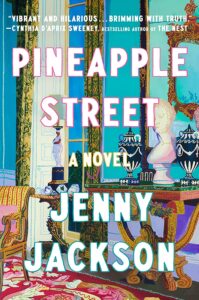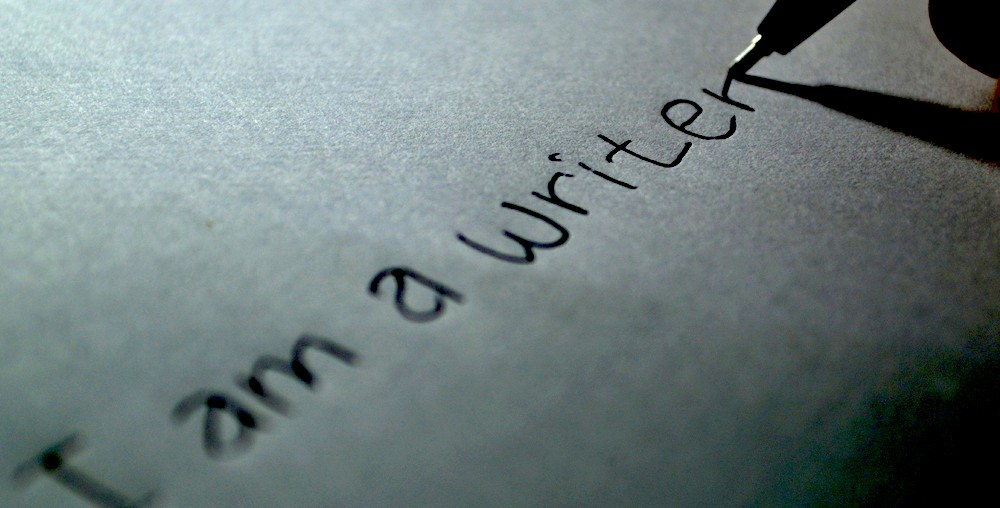If Doctors Make the Worst Patients, Do Editors Make the Worst Authors?
Jenny Jackson, Editor-Turned-Debut-Author, Fears So
I come from a family of doctors. They deliver babies, administer epidurals, fix broken bones, and perform all kinds of surgeries—both in the operating room and at home for fun. My uncle once gave me stitches on Christmas Day, my cousin ruined my grandmother’s white sofa performing toenail surgery in the living room, and collectively they have rescued and sutured up countless dogs, including one absolutely hideous pet they named Roadkill.
Even though I have excellent health insurance and a lovely primary care doctor right here in New York City, I choose to call my family with all manner of medical issues: fevers, pink eye, and hand foot and mouth disease (why, yes! I do have children!). Where a normal person would search WebMD, I just go into the horror show that is my camera roll and text my aunt photos of my kid’s rash. And why not?
My relatives are literally experts! In return, I offer them my life-saving expertise: If they have a college essay that needs proofing, a resume that needs flair, or my take on the Oxford comma, they can call me. Fair trade, right? I have been a book editor at Knopf for twenty years and I am, ahem, also a bit of an expert.
In 2020 our offices at Knopf closed and we joined the rest of the world in the giant social experiment that was work-from-home. I never got on the subway, I never went out to dinner, I didn’t see any friends, and like everyone else, was bored and lonely and suffering from crippling insomnia. Recognizing that sleep was no longer part of my life, I got out of bed and wrote a novel, Pineapple Street, tapping away in the dark for months. In the spring of 2021, my agent Brettne Bloom and I were ready to send the book out to about two dozen editors around town. When we got some good reads, Brettne set up calls for me to talk to these editors about the book.
“I feel like this will be easy for me,” I told her confidently. “I’ve been on the other end of so many of these calls.” Truly, I talk to every single writer I sign for my list. I’ve probably had two hundred of these conversations, telling writers how much I love their books, discussing where I see them in the marketplace, offering my suggestions for revision. I am, as we know, an expert.
I did a dozen calls for Pineapple Street and—spoiler alert—they were NOT easy for me. When an editor would say, “I love your book, but I wonder if Malcolm should be fired in the first chapter,” I would hear “Your book is garbage, and your structure is terrible.” When an editor would say, “Pineapple Street is so much fun, but I think you could expand Sasha’s part and it could be 15,000 words longer,” I would hear “Your book is basically a short story and why didn’t you know that.”
Halfway through the scheduled calls, Pamela Dorman, publisher of Pamela Dorman Books, offered a pre-empt. Pamela is extremely smart, well-regarded across the industry, and our conversation had been one of the few that failed to toss me into the pit of despair. In fact, I loved her. And, fabulously, I felt slightly intimidated by her, which I figured would prevent me from behaving like a needy lunatic. Ah, sweet summer child, I had such high hopes for myself.
I felt slightly intimidated by her, which I figured would prevent me from behaving like a needy lunatic. Ah, sweet summer child, I had such high hopes for myself.The book also sold in Canada and in the UK and so Pamela teamed up with Nicole Winstanley at Penguin Canada and Venetia Butterfield at Heineman Hutchinson to deliver editorial notes. From my perch at Knopf, I have written countless editorial letters, usually three or four pages long. For certain writers, like Emily St. John Mandel, Gabrielle Zevin, or Ayobami Adebayo, I partner with editors in Canada and the UK to deliver notes. Those editorial letters always end up being longer and a bit more unwieldy—maybe even seven pages long—the necessary product of three different passionate responses to a work.
But when Pamela, Nicole, and Venetia sent me the first editorial letter for Pineapple Street, I was aghast to see that it was eighteen pages long. I printed it out, my home printer whirring and cranking away after lazy years of mostly printing Zappos return labels. I skimmed, letting my eyes dance across their notes: “Malcolm should be fired in the first chapter… Sasha’s section should be longer… Add 15,000 words…” and I quickly shoved the letter in a drawer.
“Oh My God,” I texted my author Jennifer Close. “Edits are the worst. I can’t believe I make you do this. Do you hate me?”
“LOL” she texted back knowingly.
Over Zoom I complained bitterly to my colleagues. “Eighteen pages!” I moaned, acting like I had been served papers to appear in court. “Eighteen pages!” I groaned like a college freshman assigned a term paper.
“Wow,” they shook their heads. They were genuinely surprised, but, annoyingly, they all seemed to admire my editors for it. “They must have worked on that for weeks,” they mused. I realized I was wasting my breath complaining to other editors, so I instead wrung as much sympathy as I could from my family. It was not much.
I pouted for two weeks before I finally went back to work, pulling the editorial letter out of the drawer, careful not to strain a muscle under the sheer weight. Upon closer inspection, it was a truly excellent note. The action did need to shift. The book did need to be longer. I found a pack of Post-Its and set about outlining the revision. I moved scenes, I adjusted the pacing, I made a wall in my office that looked like Carrie’s terrorist-hunting wall in “Homeland,” though instead of details about Al-Qaeda operatives my Post-Its featured phrases like “private school auction” and “Georgiana gets drunk at baby shower.” Moving the scenes was hard—note to future self that rotating POV is horrendously complicated in structural revision—but I did it. Only when it came time to actually write another 15,000 words I got stuck. I had lost the voice, I had forgotten how to write, I didn’t know how to make new pages sound like the old pages.
I had lost the voice, I had forgotten how to write, I didn’t know how to make new pages sound like the old pages.“It’s like I was in this river when I was writing and I don’t know how to get back to the river,” I mused to my husband.
“Is this how you’re going to talk now that you’re a writer?” he asked, looking worried.
But it was truly a terrible revelation. As an editor I had worked with a lot of writers who hated revision. I have one author, a guy that I truly adore, and we approach all of the editorial process like a hostage negotiation. I ask him for another 30,000 words. He offers me 5,000. I come down to 20,000. He gives me 10,000. (He then sends me caramels from Fran’s as a bribe and so I accept my loss with grace.) For ages I had assumed he just didn’t like going back into the book once he was finished. I thought he was just sick of it and ready to move onto the next. But suddenly I realized he found it hard to get back in the river. It was an issue of creative access. (Sorry, honey, I guess I do talk like this now.)
I managed to finish my edits. Malcolm was fired. Sasha got a bigger story. The book was 15,000 words longer. Pamela and I went to lunch to celebrate. Fancy lunches with authors have long been the biggest perk of my job as an editor. We went to Via Carota in the West Village where we ordered ribbollita and carrots in spiced yogurt. We ordered “the salad” which looks like a pile of lettuce, but every leaf has been rinsed in salted water and dressed by hand. I sighed happily. Pam and I were both experts at lunch-ordering.
As my publication date loomed my publicist sets up a slew of advance media: Interviews, podcasts, even a photo shoot for a fashion label. The week before my book comes out, I wake up with puffy eyes. They are sticky, red, and repulsive. I text my aunt a photo. “It’s pink eye,” she tells me. “Go get antibiotics and wash your hands a lot. It is highly contagious.”
We move all my in-person media to Zoom and I sit as far away from the camera as I can, hoping they won’t notice the volcanic marshmallows that are my eyes. “Poor mommy,” my daughter pats me sweetly. “I know how it feels. My eyes were red and itchy last week.” Oops.
The antibiotics work and my eye-volcanos go dormant. Pineapple Street arrives in bookstores this week. Because I am an expert, I give myself the speech I have given a hundred writers over the years: Enjoy it. Start working on a new book right away. And most important of all, never, ever read the Amazon reviews. But I can’t promise I’ll follow my own advice. We doctors are the worst patients.
______________________________

Pineapple Street by Jenny Jackson is available now from Pamela Dorman Books.




















